When I was 15, my family moved halfway across the country from my hometown of Los Angeles, California, to Jackson, Mississippi. Suffice to say, it was a shock to my system. I went from living in a multicultural, cosmopolitan city with liberal values to…well…Mississippi. Like many 15-year-olds, I was already rather moody, and my new “home” didn’t do much to help.
I have a love/hate relationship with Mississippi. When my family first moved there, Obama was just running for the presidency against McCain. I myself was rather excited for Obama to win, but I had classmates who were blatantly against him due to the color of his skin.
I even had one classmate who calmly and without irony stated, “Obama’s the antichrist.” I expressed my disbelief and decided to keep my distance from said classmate. When my mother was working the front desk of our family business in Jackson, a white man handed her a Bible and pointedly told her, “You’re in America now.” She’d been an American citizen for almost 20 years at that point and was perfectly capable of reading a map. All she could do was chuckle.
Race and Mississippi
At the time, I had no language for what I was experiencing as a young Indian American. However, I knew that my experience compared to that of my Black classmates’ was far more privileged. It wouldn’t be until my 20s that I learned the word for my experience: microaggression.
Indians fall in the “model minority,” which weirdly and unfairly gives us privilege over other racial groups, despite our brown skin and “foreign” religions. It amazed me how differently white people treated me after learning that my last name was Patel and that I had a clear American accent. These shielded me from the worst of the racial sentiments Mississippi gladly imparted on its marginalized residents but not from my favorite question of all time: “What are you?” What a thoughtful, eloquent query. The answer is always a Martian (obviously) and to go do something impolite to yourself.
I say of all this to express that while my experience in this infuriating state was (for a lack of better words) colored by my brown skin, Mississippi’s true crimes are against its Black residents, who have a rich history of arts, including music, dance, food, and literature, that are heavily influenced by their experiences, joys, and traumas.
Why I Chose These Writers
It always astounded me how even in the 21st century, white Mississippians had significantly different experiences than Black Mississippians, which is seen in its literature. John Grisham comfortably writes thrillers about white people prevailing against some bad guy and even having the cops on their side. Let’s just say that Angie Thomas has some different things to say about cops.
I’ve purposefully included books by Black and white writers because I want to illustrate this dichotomy. Mississippi was created for a select group of people, and the rest of us just have to carve out spaces for ourselves or be retrofitted into it.
Despite my personal misgivings about Mississippi, I can’t help but puff my chest with pride whenever I see a hometown writer or their books displayed on a national or international stage. There’s just something about Mississippi that I can’t let go of.
To that end, I selected writers who you just might have heard of but perhaps didn’t realize came from the Magnolia State. Each of these writers has helped me see my brief home of Mississippi through a new lens.
Note: I kept this list in alphabetical order by the authors’ first names because I wanted to equalize the stories while clearly pointing out the differences in experience between Black writers and white writers. I myself am not a member of either community, so my perspective is that of a former Mississippi resident from the outside looking in, and I thought it was fairer for me to give equal treatment to each book.
Why These Authors?
With the exception of The Hate U Give, each book in this list is explicitly set in Mississippi all the time or part of the time. In addition, all authors were born in Mississippi or called it home at one point.
The Hate U Give by Angie Thomas
How could I create a list of Mississippi writers without including this incredible book? Although Mississippi isn’t directly mentioned in The Hate U Give, Angie Thomas was born and raised in Jackson, Mississippi, in a home not far from where civil rights activist Medgar Evers was assassinated. The Hate U Give is about the fallout and trauma caused by a deadly police shooting against an unarmed Black man. Thomas dug into her own experiences with gun violence as well as the murders of Oscar Grant, Trayvon Martin, Tamir Rice, Michael Brown, and Sandra Bland to write her story.

The Little Friend by Donna Tartt
The Little Friend is set in Alexandria, Mississippi, and begins during a Mother’s Day when a young boy is found hanging from a tree. Flash forward 12 years, and the murder is still unsolved, leaving a heartbroken family in its wake. Determined to bring her brother’s murderer to justice, Harriet, with the help of her friend Hely, doggedly cuts through her town’s deep barriers of race and caste.
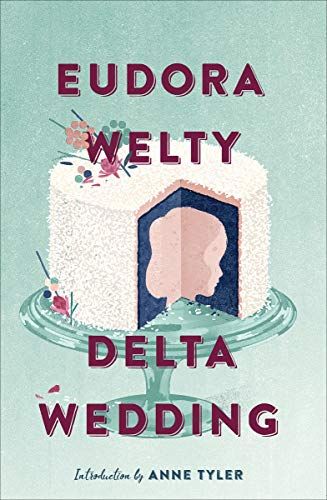
Delta Wedding by Eudora Welty
Teenage me had never heard of Eudora Welty until I moved to Jackson, where her home is a historic site and popular tourist destination. I personally never read Welty’s novels but have been impressed by her short stories. Although The Optimist’s Daughter is what won her the Pulitzer Prize in 1972, I included Delta Wedding in this list because of its setting in the Mississippi Delta.
The story is one of manners, specifically that of the high-minded and aristocratic Fairchilds. Told from the perspective of precocious 9-year-old Laura, the story is about Laura’s resentment toward her extended family and eventual understanding of them. While Welty is a brilliant writer, I will say that Delta Wedding is about a rich white family that’s insulated and perfectly safe from the racial discrimination Mississippi is famous for.

Salvage the Bones by Jesmyn Ward
I was still living in California when Hurricane Katrina ripped through the South in 2005. I distinctly remember heavy rain for several days but not much else. But when I moved to Mississippi two years later, people were still talking about it, and I had classmates who’d permanently moved from New Orleans to Mississippi due to the wreckage. Salvage the Bones will take you to Bois Sauvage, Mississippi, which is close to the Gulf of Mexico. Here, a family is preparing for the impending storm and must face the things that pull them apart and push them together.
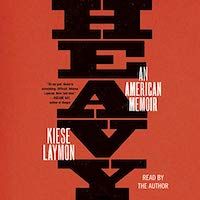
Heavy by Kiese Laymon
I read Laymon’s memoir Heavy last year, and it was one of my top ten favorite books of 2020. Hands down. Even though our experiences with Mississippi are different, I still related to Laymon’s impressions of the state and the effect it has on its marginalized communities. In Heavy, Laymon explores how the weight of discrimination affects a Black body while relaying fearless accounts of his life growing up as the stubborn son of a complicated Black mother in Jackson.
I strongly recommend reading Heavy and Black Boy (see below) together because both books will give you an excellent overview of what it means to grow up Black in Mississippi.
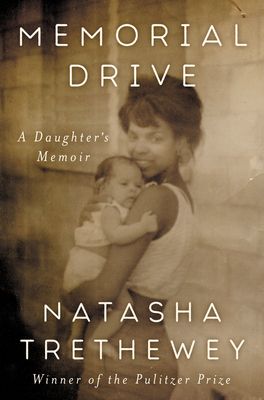
Memorial Drive by Natasha Trethewey
Another top ten favorite book from 2020 was Memorial Drive. Trethewey is a beautiful writer whose elegiac memoir is almost like a love letter to her mother, who was murdered by her second husband. I loved this book because it not only expressed trauma caused by gun violence, but also a deep connection between mother and daughter, even after one has passed. Mississippi makes an appearance as the place of Trethewey’s birth and is the landscape in which she grew up as a “child of miscegenation.”
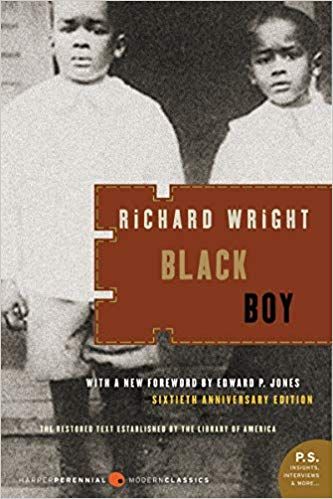
Black Boy by Richard Wright
I first read Richard Wright in college and was awestruck with his mastery of prose and how he eloquently but succinctly relayed complex narratives. Wright was born in Adams County, Mississippi, and Black Boy is his memoir that recounts his life growing up in the Jim Crow South. It’s an important coming-of-age tale that’s relevant now as the day it was first published.
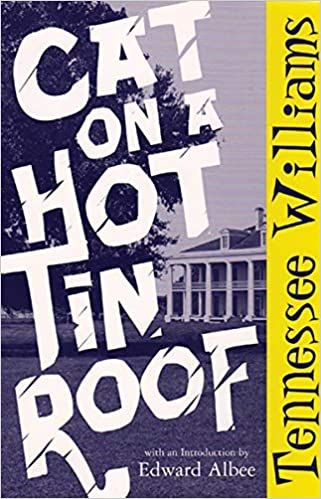
Cat on a Hot Tin Roof by Tennessee Williams
Silly me. I honestly thought Tennessee Williams was from…well…Tennessee. In fact, Williams was born in Columbus, Mississippi, and one of his famous works of all time, Cat on a Hot Tin Roof, takes place in Mississippi. The classic tale follows the petty rivalries and complex relationships within a privileged white southern family.
Many people take the story at face value. However, I encourage you to not only enjoy the story (and the equally classic movie with Elizabeth Taylor because Elizabeth Taylor), but also to consider the stark differences between the trials and tribulations of this aristocratic white family and that of Black families who they no doubt exploited on their way up the social ladder.
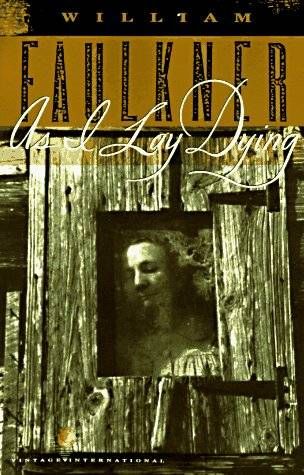
As I Lay Dying by William Faulkner
Mississippi doesn’t have too much to brag about. However, there were a few things I learned upon moving to the state: sweet tea is liquid gold, you’re either Hail State or Hotty Toddy (if you know you know), and William Faulkner is from Mississippi. As I Lay Dying is one of his most famous works and is the account of the Bundren family as they trek across Mississippi to bury their wife and mother. It’s not just a cornerstone of Mississippi culture but of American culture.
When you’re ready for more, take a tour of the southern literary trail, Mississippi I-55, and Oxford, Mississippi.










